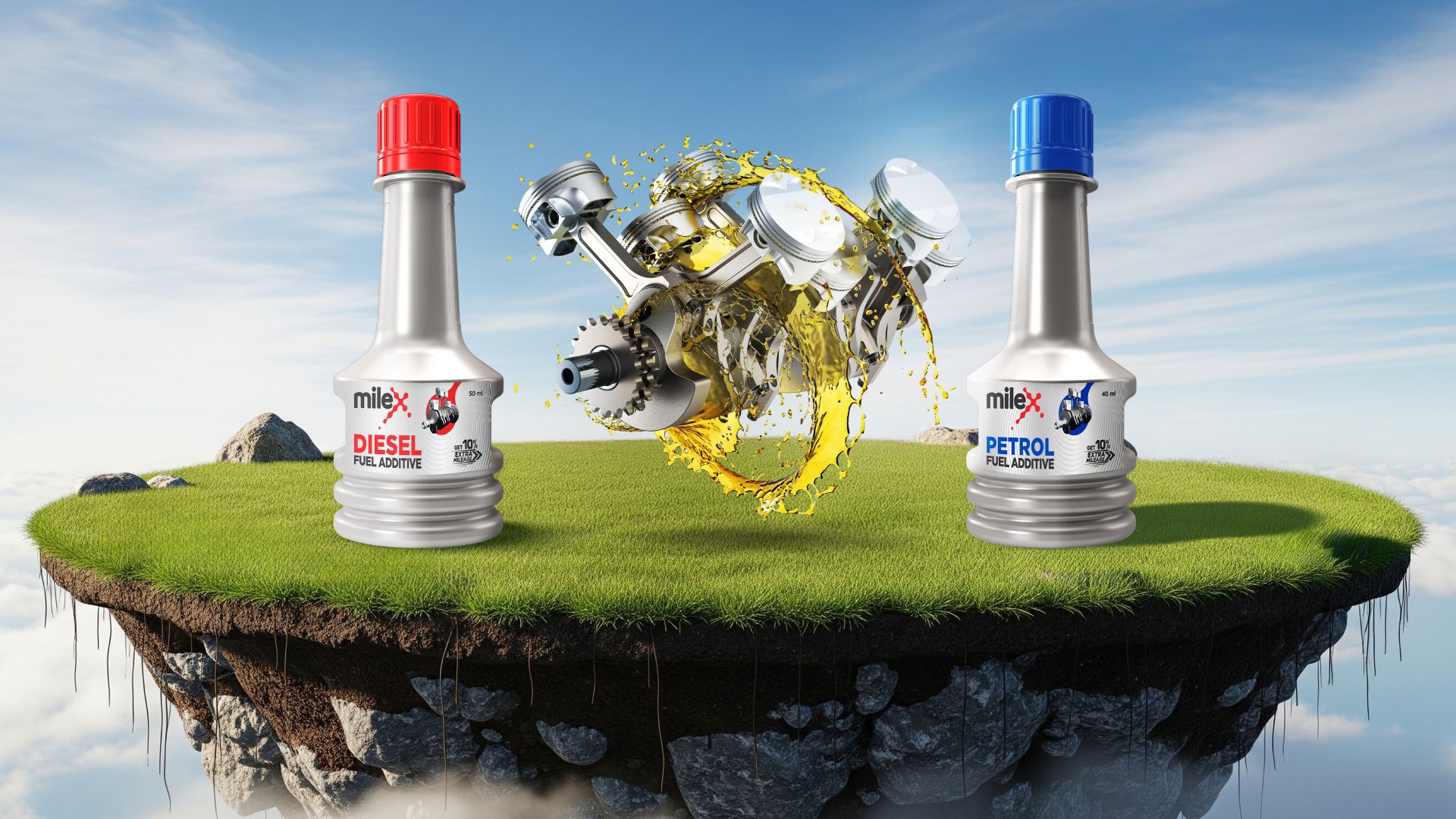There’s something oddly satisfying about a quiet, smooth-running engine. The kind that purrs instead of rattles, hums instead of growls. But let’s face it—over time, engines tend to get a little louder, a little rougher, and a bit more unpredictable, especially if they’ve clocked in a good number of miles. That’s where fuel additives come into the picture.
If you’ve ever wondered why your car feels like it’s grumbling in protest every time you start it on a cold morning, or what that knocking sound under the bonnet really means, you’re not alone. Engine noise and vibration aren’t just annoyances—they’re often the first signs that something inside isn’t quite right.
Let’s break down what causes all this clatter, and more importantly, how the right fuel additive like Milex – can help tone it all down.
What causes engine noise and vibration?
Engines are built to work hard, but they’re also made to work precisely. When things are out of sync—whether it’s due to worn parts, dirty fuel systems, or even ageing components—your engine makes sure you hear (and feel) about it.
Engine noise often stems from things like:
Poor combustion: When fuel isn’t burning as it should, it leads to uneven explosions in the engine cylinders. That translates into knocking, pinging, or chattering sounds.
Deposits and dirt: Over time, carbon deposits from fuel build up on critical engine parts. This can lead to poor fuel atomisation, misfiring, and—you guessed it—more noise.
Ageing engines: Older engines naturally develop gaps and wear that make them more susceptible to vibration and sound.
Cold starts: When the engine is cold, oil hasn’t yet circulated fully, and the metal parts haven’t expanded to their usual operating size. That’s when noise and vibration spike.
And if you’re driving a diesel engine? Vibration is even more common, especially at idle or during sudden acceleration. Diesel engines operate under higher compression, so any imbalance is magnified through the cabin floor and steering wheel.
How do fuel additives help reduce engine noise and vibration
So how do you hush an engine without heading to the mechanic every few months?
This is where engine noise reduction additives step in.
Fuel additives, especially those crafted for performance, do more than just clean—they improve combustion, reduce friction, and support the engine’s overall health. Products like Milex are designed to target the exact issues causing the commotion under your bonnet.
Here’s how they work:
Cleaning internal components: Additives help dissolve carbon deposits in fuel injectors, valves, and combustion chambers. Cleaner parts lead to more even fuel spray, which means better combustion and quieter operation.
Smoother combustion: By improving fuel burn, additives prevent irregular explosions in the cylinder—reducing knocking sounds and lessening vibrations.
Lubrication support: Some additives also provide a thin protective layer to internal engine parts, cutting down friction and helping moving parts glide more smoothly.
Improved fuel quality: In regions where fuel quality is inconsistent, additives act as a buffer, helping your engine perform better despite the odds.
So yes, fuel additives can reduce engine knocking sounds. And not just that—they can make older, noisier engines feel younger and calmer again.
Understanding knock in the engine and how additives help
That knocking sound you hear? It’s not just annoying—it’s a warning sign.
Knock in the engine happens when the air-fuel mixture ignites too early in the combustion process. Instead of a controlled burn, you get tiny explosions that can damage parts over time. It’s like your engine is trying to punch its way through the problem.
Engine performance additives like Milex can soften the blow by stabilising the combustion process. They ensure the fuel burns when it’s supposed to, reducing stress on the engine and making it run more predictably—and much more quietly.
For anyone asking, “Which additive helps make the engine run quieter?”, the answer lies in a product that actively works to clean, lubricate, and improve fuel combustion. In short, Milex.
Keep your engine quiet and smooth with Milex fuel additives
A noisy engine might seem like a small inconvenience, but it’s often a sign of something deeper. Whether it’s knocking, harsh vibrations, or just that unsettled rumble during cold starts, it’s your car’s way of saying it needs a little TLC.
And no, you don’t always need to book a workshop appointment to fix it.
Whether you’re dealing with vibration in a diesel engine, a cold-start groan, or just an ageing vehicle that’s not as refined as it once was, a reliable fuel additive like Milex can make all the difference. It’s easy to use, cost-effective, and over time, it pays off in a smoother, quieter, longer-lasting engine.
So the next time you hear your engine protesting, give it what it’s asking for.
Pour in a little Milex. Hear the difference. Feel the calm.
